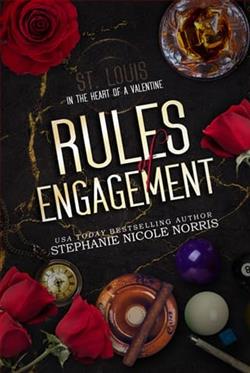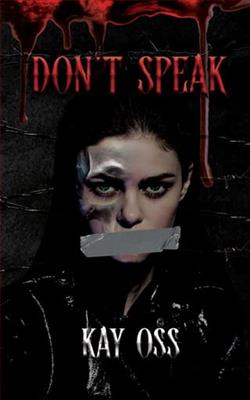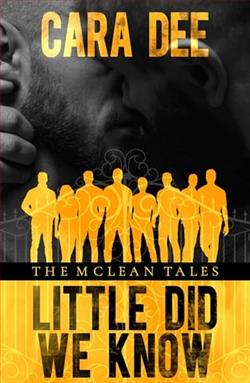Page 27 of All's Fair In Love & War
I froze, and my breath caught in my throat. How had they noticed me? I’d been careful, hadn’t I? Apparently not, but they didn’t call attention to me beyond that. My father didn’t even glance toward the door, too engrossed in their conversation. However, as El Fantasma’s gaze lingered on the shadows where I hid, I felt like I had been seen in a way I never had before.
It wasn’t until months later that I saw them again.
I was playing in the garden, climbing one of the old oak trees lining the estate’s perimeter. My brothers had wandered off, leaving me to entertain myself, and I took comfort in the quiet.
That’s when I felt it—a presence.
“You’re quick, but not quick enough,” a familiar voice said from below.
Startled, I nearly lost my grip on the branch. Peering down, I saw them standing at the base of the tree, their arms crossed, a faint smile curving their lips.
“How did you—?”
“You’re not as invisible as you think, niña.” Their tone was amused but carried an edge of challenge, like they were daring me to try harder next time.
And then, just like that, they disappeared.
However, that wasn’t the last time I saw them. Over the next few years, they began to appear more frequently, always at the edges of my world. They would catch me sneaking through the halls, shadowing my brothers, or eavesdropping on my father’s meetings.
At first, they teased me. Their comments were always sharp but never unkind. Then the lessons began.
It started with minor corrections, such as a quick adjustment on how I held a blade or a warning about how to move without being seen.
One day, when I was thirteen, something shifted.
“You think death is a game, don’t you?” they asked, their voice cutting through the quiet as we stood in the empty training room inside my home.
I turned to respond, and for the first time, their hood was down.
El Fantasma wasn’t a faceless figure anymore.
They were a woman—a beautiful woman. Her skin was the color of caramel, her sharp almond-shaped eyes framed by thick lashes, her full lips set in a knowing smirk. Her curls were pulled back into a loose bun, and I noticed the faint freckles dusting her cheekbones.
She looked like me.
“Stop staring,” she said, but there was a hint of a smile in her tone.
“You’re…” I faltered, unsure of what to say.
“Like you?” she finished, raising a brow. “Sí, niña. You could say that.”
I later learned that she was half-Mexican, half-Black, just like me, and that she was my aunt. My grandfather stepped out on his wife, and thus, she was born. That undeniable connection made her lessons feel even more personal.
From that day on, she didn’t hold back.
“You want to survive in this world?” she said one night as she taught me how to move silently through the estate. “Then you need to understand people. You need to learn how they think and how they see. Or don’t see.”
She taught me to read people, to spot their tells, their fears, and their weaknesses. She showed me how to wield my femininity like a weapon, to disarm with a smile while hiding a blade behind my back.
“El peligro no está en la pistola, niña. Está en la mente,” she told me once, holding a handgun. (The danger isn’t in the gun. It’s in the mind.) “Always play it smart. Only tell people what they need to hear, never anything more. Lie if you must, hide if you need to, but never hand over your power for the sake of being seen in any light but yours. The world isn’t kind, and life isn’t fair. It’s all a game. Learn to play it, or you’ll get played.”
She didn’t just teach me how to kill. She taught me how to make it an art form.
As I grew older, our training sessions became more intense and more deliberate. By sixteen, I wasn’t just learning. I was executing. She took me on my first job, guiding me every step of the way.
Her methods were meticulous, and her kills were flawless. However, there was always something about them that was uniquely hers. A signature that turned her work into art, if you will.
It was then that I realized she wasn’t just training me. She was grooming me to become her successor.















